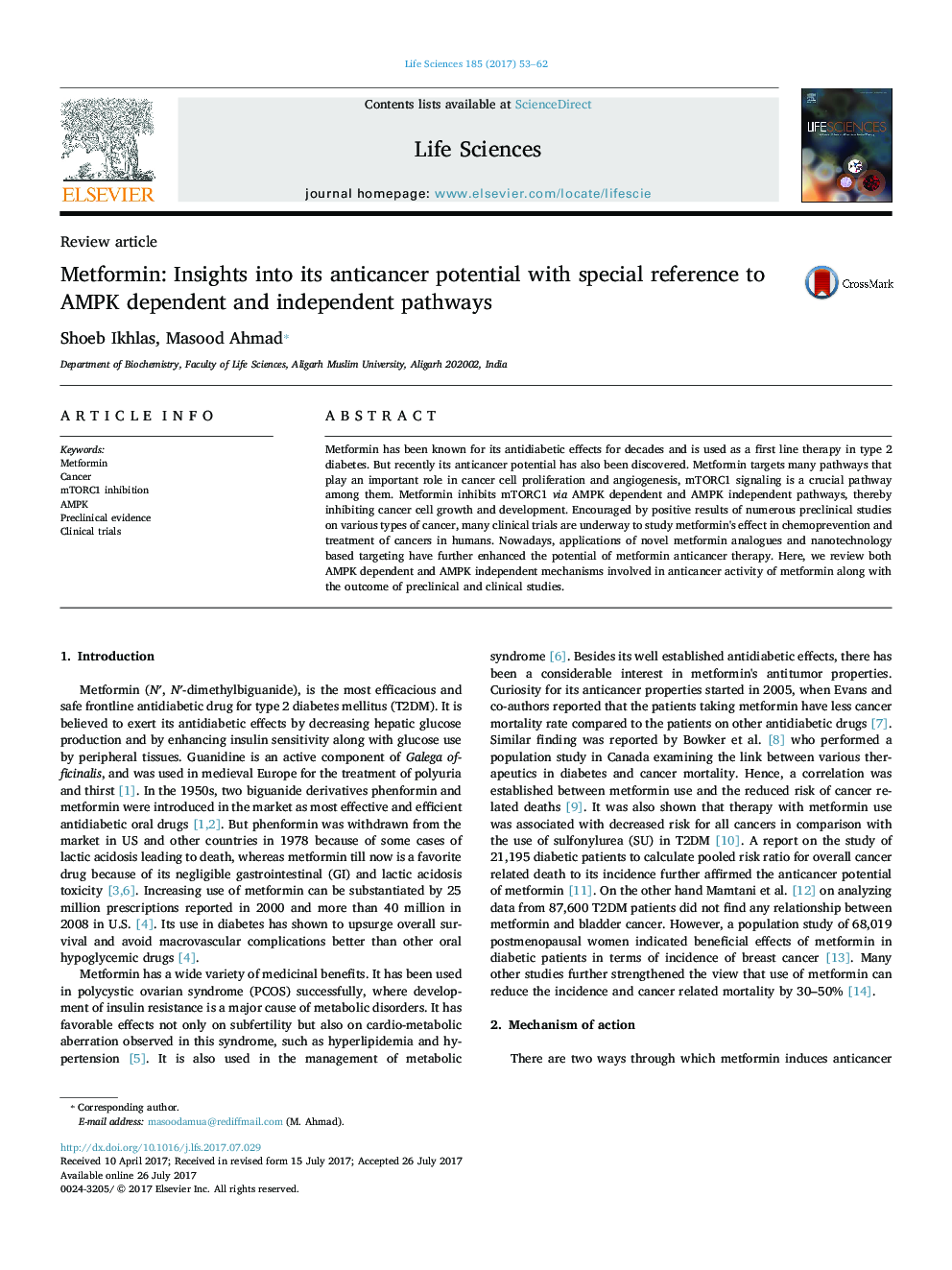| Article ID | Journal | Published Year | Pages | File Type |
|---|---|---|---|---|
| 5556737 | Life Sciences | 2017 | 10 Pages |
Metformin has been known for its antidiabetic effects for decades and is used as a first line therapy in type 2 diabetes. But recently its anticancer potential has also been discovered. Metformin targets many pathways that play an important role in cancer cell proliferation and angiogenesis, mTORC1 signaling is a crucial pathway among them. Metformin inhibits mTORC1 via AMPK dependent and AMPK independent pathways, thereby inhibiting cancer cell growth and development. Encouraged by positive results of numerous preclinical studies on various types of cancer, many clinical trials are underway to study metformin's effect in chemoprevention and treatment of cancers in humans. Nowadays, applications of novel metformin analogues and nanotechnology based targeting have further enhanced the potential of metformin anticancer therapy. Here, we review both AMPK dependent and AMPK independent mechanisms involved in anticancer activity of metformin along with the outcome of preclinical and clinical studies.
Graphical abstractDownload high-res image (143KB)Download full-size image
